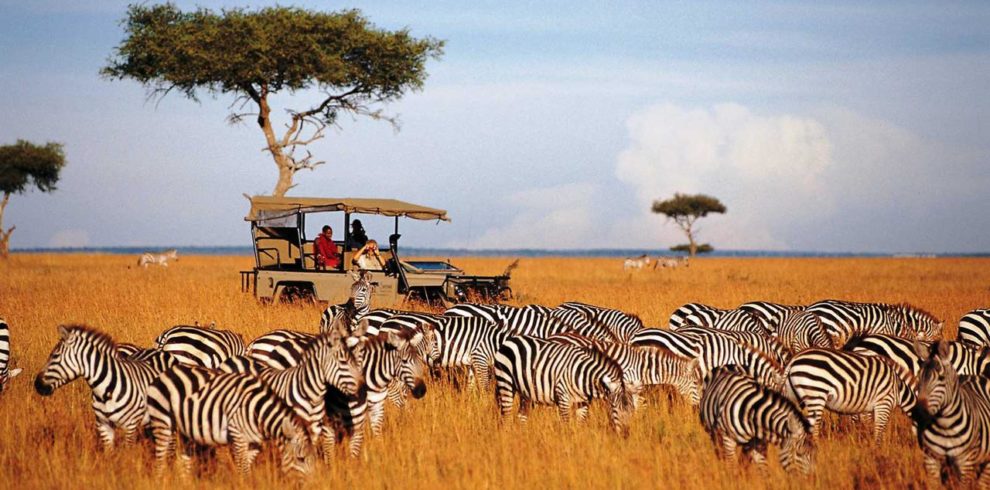The Masai Mara National Reserve, located in southwestern Kenya, is one of Africa’s most celebrated safari destinations. Renowned for its abundant wildlife, stunning landscapes, and the annual Great Migration, this reserve offers an unparalleled safari experience. For those considering a Masai Mara safari holiday, here’s a comprehensive guide to what you can expect, how to plan, and why this destination should be at the top of your travel list.
The Magic of the Masai Mara
1. The Great Migration
One of the primary attractions of the Masai Mara is the Great Migration, an extraordinary natural phenomenon that sees millions of wildebeest, zebras, and gazelles journey from the Serengeti in Tanzania to the Masai Mara. This migration typically occurs between July and October, providing a dramatic display of nature’s power and the circle of life. Witnessing this event is often described as a once-in-a-lifetime experience, as the herds cross the Mara River, facing challenges from predators and the elements.
2. Diverse Wildlife
The Masai Mara is home to an impressive array of wildlife. Beyond the Great Migration, the reserve hosts a variety of animals, including the Big Five—lion, leopard, elephant, buffalo, and rhino. The open plains and diverse habitats of the Mara make it ideal for spotting predators like cheetahs and hyenas, as well as herbivores such as giraffes and hippos. Bird watchers will also find delight in the rich avian life, with over 450 species recorded in the reserve.
3. Scenic Landscapes
The Masai Mara’s landscapes are as varied as its wildlife. From the expansive savannahs dotted with acacia trees to the lush riverine forests and rolling hills, the scenery is breathtaking. The Mara River, flowing through the reserve, adds a touch of serenity to the dramatic vistas. Sunrise and sunset safaris offer some of the most spectacular views, with the golden light casting a magical glow over the landscape.
Planning Your Safari
1. Best Time to Visit
While the Masai Mara is a year-round destination, the best time to visit depends on what you want to experience. The dry season from July to October is ideal for witnessing the Great Migration and for game viewing due to the sparse vegetation and easier animal spotting. The wet season, from November to June, brings lush greenery and fewer tourists, though some roads might be less accessible due to rains.
2. Accommodation Options
The Masai Mara offers a range of accommodation options, from luxury lodges and tented camps to more budget-friendly options. Luxury lodges such as the Governors’ Camp and Sarova Mara Game Camp provide exceptional comfort and service, often with private verandas overlooking the savannah. For a more immersive experience, consider staying at a tented camp like the Mara Explorer or the Olare Mara Kempinski, where you can enjoy the sounds of the wilderness while still having modern amenities.
3. Safari Activities
The primary activity during a Masai Mara safari is game driving, where you’ll explore the reserve in a 4×4 vehicle with a knowledgeable guide. This allows for close-up wildlife encounters and opportunities to capture stunning photographs. Many lodges and camps also offer additional activities, such as guided nature walks, hot air balloon safaris, and cultural visits to local Maasai villages. Each of these adds a unique dimension to your safari experience.
Cultural Encounters
1. Maasai People
The Maasai people, indigenous to the region, are a vibrant part of the Masai Mara experience. Known for their distinctive dress and traditional customs, Maasai communities often welcome visitors to their villages. This interaction provides insight into their way of life, including their customs, dance, and crafts. Engaging with the Maasai not only enriches your safari experience but also supports the local communities.
2. Conservation Efforts
The Masai Mara is also a focal point for conservation initiatives aimed at protecting the reserve’s unique ecosystems and wildlife. Many lodges and tour operators are involved in conservation projects, from anti-poaching efforts to community education programs. By choosing a responsible safari operator, you contribute to these important efforts and help ensure the sustainability of this remarkable environment.
Tips for a Successful Safari
1. Pack Wisely
When packing for a Masai Mara safari, consider the climate and activities you’ll be undertaking. Lightweight, breathable clothing in neutral colors is ideal for game drives, as bright colors can disturb wildlife. Bring layers to accommodate temperature changes, especially early mornings and evenings. Don’t forget essentials such as binoculars, a good camera with a zoom lens, and sun protection.
2. Health and Safety
Ensure you have the necessary vaccinations and take precautions against malaria, as the Masai Mara is a malaria-risk area. Consult with a travel health specialist before your trip. Additionally, drinking plenty of water and following food and water safety guidelines will help keep you healthy throughout your safari.
3. Respect Wildlife
Maintaining a respectful distance from wildlife is crucial for both your safety and the well-being of the animals. Follow your guide’s instructions and avoid actions that might disturb the animals. Remember, the goal of a safari is to observe and appreciate wildlife in their natural habitat without interfering.
Final Thoughts
A Masai Mara safari holiday is a journey into one of Africa’s most spectacular natural landscapes, offering an unforgettable adventure filled with incredible wildlife, breathtaking scenery, and cultural experiences. Whether you’re captivated by the Great Migration or the daily drama of the savannah, the Masai Mara promises an enriching and exhilarating safari experience. Plan your trip thoughtfully, embrace the magic of the Mara, and prepare for memories that will last a lifetime.




